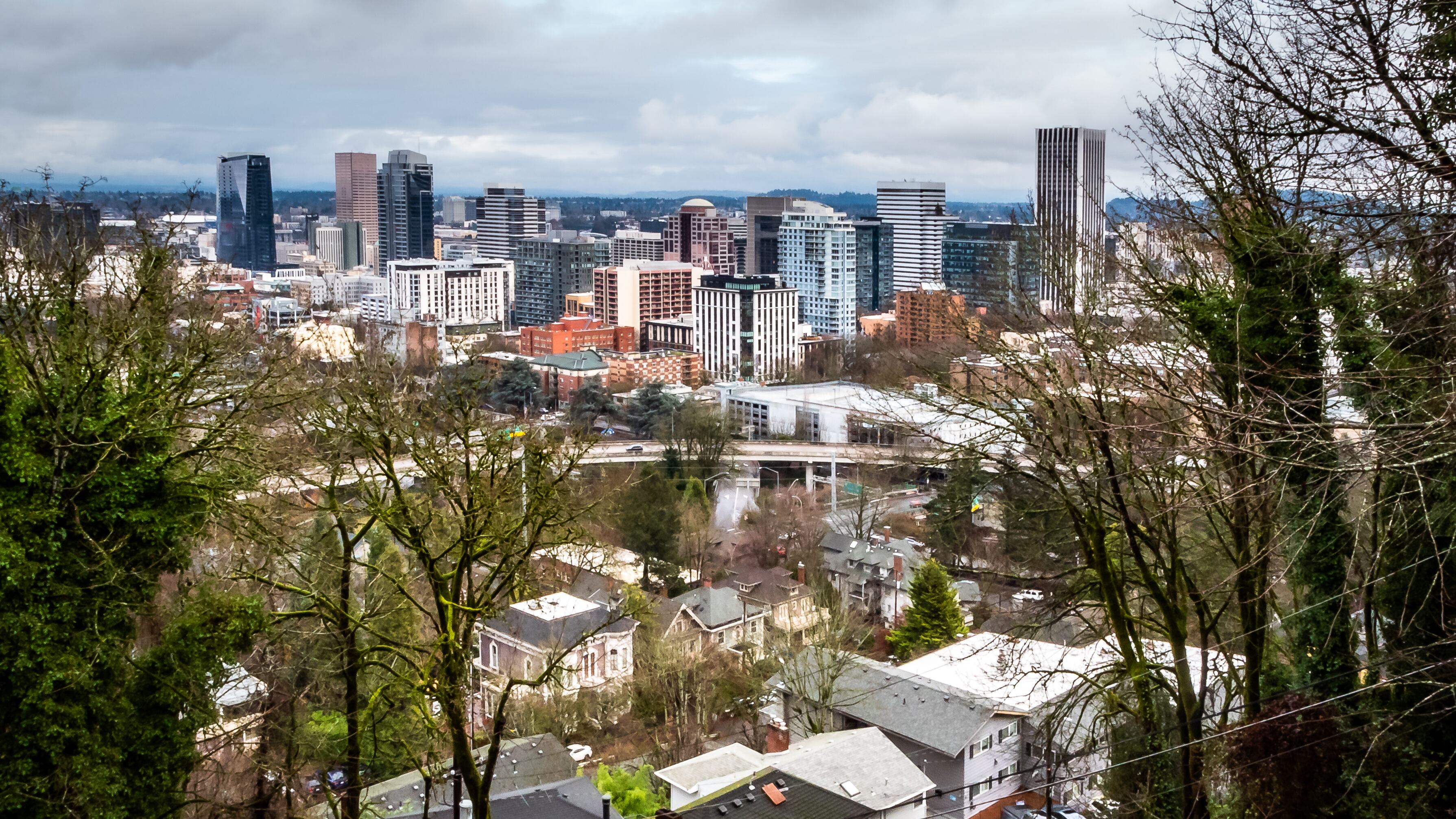The city of Portland and state lawmakers want to help developers convert office buildings to apartments, as the city’s core struggles to rebound after the pandemic gutted its workforce.
The mayor’s office is looking at a number of different incentives to spur conversion, like waiving system development charges and tweaking seismic upgrade code. One bill slated for the upcoming Legislature proposes a state loan fund that cities could borrow from for “workforce housing” projects. Another bill proposes striking additional parking requirements for those conversions, among other financial incentives.
In an internal September memo, crafted by policy staff in Mayor Ted Wheeler’s office and obtained by WW, staff wrote that “no major buildings have been converted from office space to residential use in Portland in at least the last three years.”
Meanwhile, recent reports show downtown office vacancy at 26%. National experts warn that some of the workforce in American cities will never return, and that cities must adapt to find new uses for some of their spaces. For many cities with housing shortages, there’s a natural, but difficult, answer to that problem: office to residential conversions.
Those conversions, however, are incredibly expensive. A recent New York Times article said the price could top $500 per square foot. Cities across the country are experimenting with a number of incentives like loan programs, offering partial tax abatements, and easing permitting restrictions. Portland and the state of Oregon, though each has yet to pass anything, are exploring the same.
The mayor’s office recently commissioned an analysis by ECONorthwest and architectural firm Gensler of buildings that might be appropriate for conversion, as well as a profile of those buildings (including age, architecture style and size). That analysis is ongoing.
But a preliminary report delivered to Mayor Ted Wheeler’s office this summer by local real estate expert Peter Andrews of Melvin Mark Brokerage listed 14 buildings that could be ripe for conversion, if the right incentives were offered by the city and state. (The report was compiled using data provided by CoStar.)
Below are the buildings listed in that report.
1. The Commonwealth Building at 421 SW 6th Ave.
2. The Historic Bank Block at 309 SW 6th Ave.
3. The Blagen Block at 34 NW 1st Ave.
5. The Dekum Building at 509-519 SW 3rd Ave.
6. Building at 2121-2125 SW 4th Ave.
7. Aspect on Sixth at 400 SW 6th Ave.
8. RiverTec Building at 902-926 NW 13th Ave.
9. The J.K Gill Building at 426 SW Harvey Milk Street
10. Building B&C at 2525 SW 1st Ave.
11. Building at 220 NW 2nd Ave.
12. The 10 TwentyOne at 1021 SW 4th Ave.
13. Mason Erhman Building at 222 NW 5th Ave.
14. The West End at 1017 SW Washington St.
